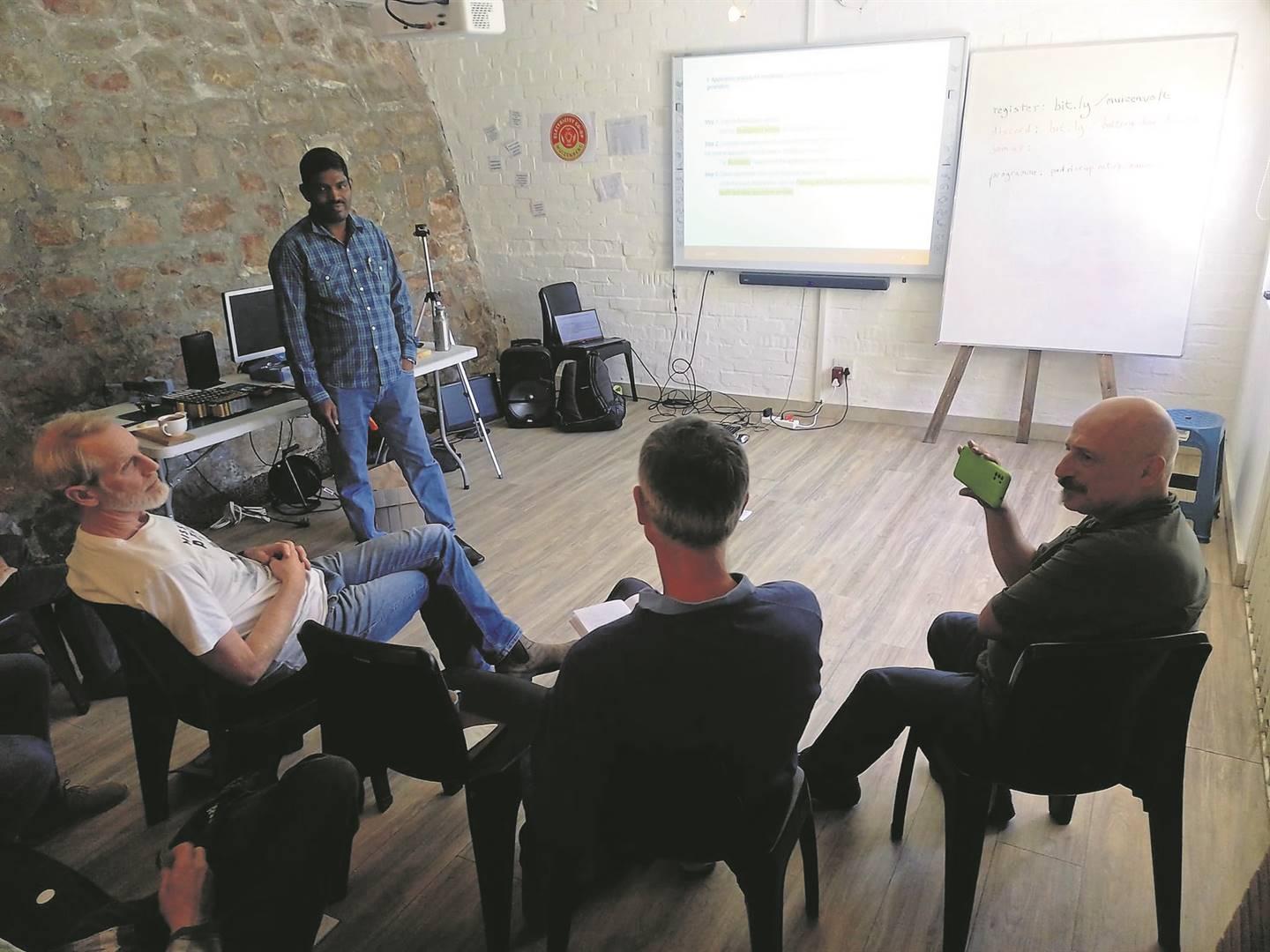Africa-Press – South-Africa. As South Africans spent up to eight hours in the dark on Saturday and Sunday when Eskom implemented Stage 6 load shedding over the weekend, the Muizenberg Electricity Crisis Committee held its inaugural battery build day as a means to tackle the issue.
David Robert Lewis, the founder of the Muizenberg Electricity Crisis Committee, said it was time to take a community approach.
“It is our inaugural battery build day event and we are hoping that we will be hosting more of these events because of the electricity crisis.
“This morning, I gave a presentation on our modest proposal for a co-operative servicing the Muizenberg and satellite communities where we have a provisional name registration as Muizenberg Electricity Co-operative.
“We are fed-up, to say I am angry and frustrated is putting it mildly.”
Lewis added that communities needed to become more self-reliant and resilient as Eskom could not be counted on.
“We need to pull our communities up by the boot strings and we need to take a communitarian approach.
“I refuse to accept that we need to go back to primitivism. We are in the 21st century and we have information tech and we definitely need to become more self-reliant and resilient.”
Lewis further added that the battery build day was to look at modest battery prototypes and to create solutions.
“We want to campaign around community tariffs, collective bargaining, bringing down the cost and entry point for solar panels and battery storage and promote a very modest battery prototype that we feel is the direction that we need to evolve and develop.
“We are going to do this ourselves and meet the challenges.
“We are going to create solutions that, hopefully, can remove this shackle. We also need people to step up and volunteer their time to join us as members.”
Meanwhile, Dr Senthil Krishnamurthy, a lecturer from the faculty of engineering at the Cape Peninsula University of Technology, gave a briefing on microgrids, tariff structures, costs involved, legislation and legislative restrictions.
“Each person is suffering in terms of the current energy crisis, so we are looking at ways to sustain ourselves.
“There are possible ways you can go, such as solar rooftop PV with a battery and inverters. We need to assist the community in what capacity and the solar panel sizes and inverter sizes they would need.”
He added that the costs would vary depending on appliances used in the home during load shedding.
“During load shedding, are you going to go off the grid in terms of solar panels for all the appliances or will you categorise according to your appliances, your critical load and non-critical load?
“In most cases, the critical load will be connected during load shedding.
If we look at a cost benchmark scenario, we are looking at a 5kw inverter battery and inverter solar panel, roughly we are looking at R170 000.”
However, he added with the 25% tax rebate initiative which the government is expected to implement on solar panels. This could be a claim back of R11 000.
“The finance minister recently announced the 25% tax rebate for solar panels so the customer would roughly be able to claim back around R11 000, this only applies for the solar panels but not for other accessories.
“The only thing is, would this be affordable for you and is the bank willing to give you a loan.”
For More News And Analysis About South-Africa Follow Africa-Press






